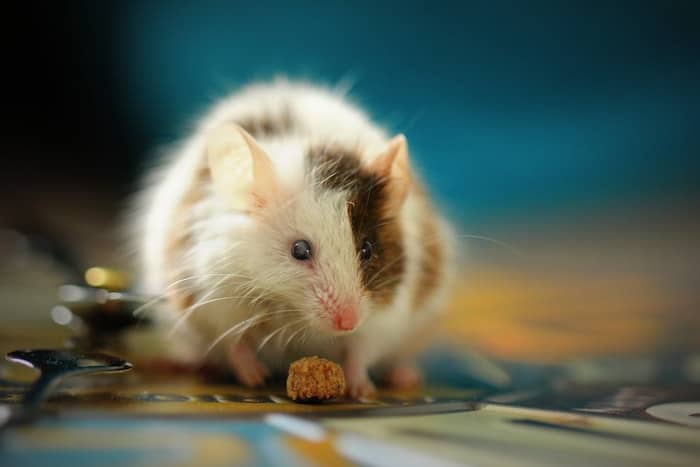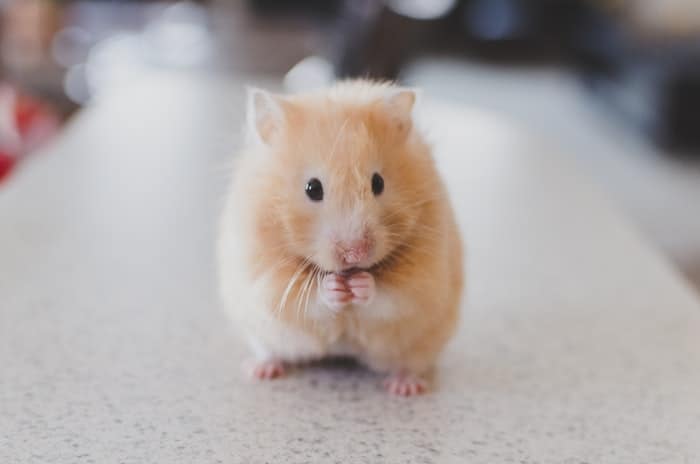If you are a dog or cat owner, you might be aware of how chocolate is a big no-no for your fur babies. Even the smallest bite of chocolate can already be toxic for them. What about mice, then? Does chocolate really kill mice, too?

Chocolate contains a chemical called theobromine, which is poisonous to mice. Mice are attracted to the sweet taste of chocolate, but they can’t metabolize theobromine as well as humans can. Theobromine builds up in their systems and eventually kills them.
So yes, chocolate can kill mice – but it takes a lot of chocolate. A mouse would have to eat a large amount of chocolate for it to be fatal. So if you are thinking of killing mice using chocolate then prepare to buy a lot of chocolate.
Chocolate Will Not Kill Mice Right Away
Surprisingly, there is a very few professional research studies conducted to determine the relationship between chocolate and mice. But the consensus from pet mouse owners and the laboratory studies of scientists involving chocolate and mice is that small amounts of chocolate don’t kill mice right away.
However, it is important to remember that chocolate contains theobromine, a dangerous chemical for all types of animals that can affect the circulatory and nervous systems. Theobromine can be found in the cacao plant itself that gets released as a form of defense mechanism every time an animal consumes the seeds.
High levels of theobromine will remain even after cacao is turned into chocolate. The good news is that humans don’t have to be concerned about theobromine since the human liver is exceptionally efficient when it comes to filtering out the chemical from the body. Smaller animals, however, such as birds, dogs, cats, rats, and mice have to watch out for their intake of theobromine.
But it is interesting that despite their tiny size, mice have notably strong livers. Unfortunately, their small size combined with their voracious appetites for delish chocolate can put them at higher risk of suffering from theobromine poisoning when they end up consuming it in large amounts.
It means that even if chocolate is not harmful enough to cause instant death in mice, it can still be toxic and can be potentially lethal when consumed in excessive quantities.

Can You Feed Chocolate to Pet Mice?
Well, the answer to this next question will ultimately depend on what you find comfortable. If you prefer to play it safe, avoid giving even the smallest amount of chocolate to your pet mice. Remember that many other kinds of food are not toxic and are safe for mice to eat.
But if you like to treat your pet with a piece of chocolate now and then, many health specialists and vets claim that it is acceptable that you let your mouse munch on a tiny piece of chocolate that is no more than what their small hands can hold.
You can do it every two weeks and the amount shouldn’t be more than this. Doing so will increase the risk of your mouse suffering from any complications brought about by theobromine.
If you find it hard to resist treating your pet mouse to more chocolate more often, the safer alternative you can try is to feed your pet with white chocolate. White chocolate has a relatively lower concentration of theobromine, which means it is less likely to lead to poisoning.
Once again, it is still surprising and even frustrating that there is still limited information regarding chocolate and mice. It remains unclear as to what dosage of chocolate is considered lethal for mice. It might be that you can give your pet mouse more than a tiny chocolate piece every couple of weeks. However, it is not something that vets and experts recommend since the results are not conclusive. It is also not something that most owners of pet mice might be willing to experiment with.
Is Milk Chocolate Better Than Dark Chocolate for Mice?
A test has found that mice seem to prefer and are more attracted to eating chocolates with higher sugar content. This test used very dark chocolate, dark chocolate, white chocolate, and milk chocolate.
- Dark Chocolate: 38% sugar and 62% cacao
- Milk Chocolate: 56% sugar and 20% cacao
- Very Dark Chocolate: 15% sugar and 85% cacao
- White Chocolate: 52% sugar and 30% cacao butter
The test has quite interesting results. The mice in the test spent the most time close to the white chocolate. However, they ate the most amount of milk chocolate, which implied that while they find white chocolate to be the most appealing, the mice prefer eating milk chocolate instead.
It is also interestingly noted that the mice didn’t eat any of the two variants of dark chocolates. But it is also possible that it only happened because the room used for the test both has white chocolate and milk chocolate.
The mice may choose to exclusively feed on the chocolates with more sugar. The study concluded that mice enjoy milk chocolate the most with white chocolate taking the second spot in their list of favorites.

Can You Use Chocolate as Bait for Mice?
Chocolate is a great option that can be used as bait to say goodbye to pesky mice pests. Peanut butter and chocolate are two foods that mice love eating. Either of these two can work as an effective bait, with most people reporting that they were successful in using chocolate covered in peanut butter as bait.
You have surely read or heard of the claims that cheese is the most effective kind of bait for mice. However, it seems that chocolate is more effective because mice find the high sugar content irresistible. Mice like and eat cheese too but they like sugar even more.
In case you have plans to use chocolate as bait for mice that are scurrying around in your house, make sure you use the chocolate on mouse traps instead of just using it as bait on its own. Simply put, although chocolate in large amounts is very toxic to mice, you should avoid placing bars or pieces of chocolate out for mice to feed on since it might end up attracting more pest rodents inside your home.








